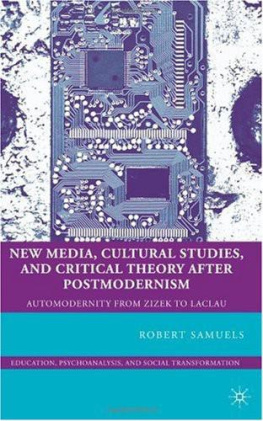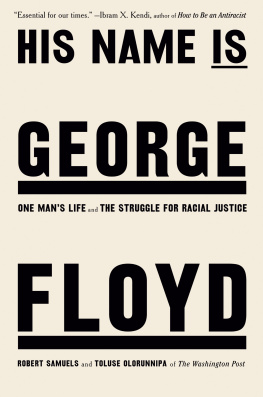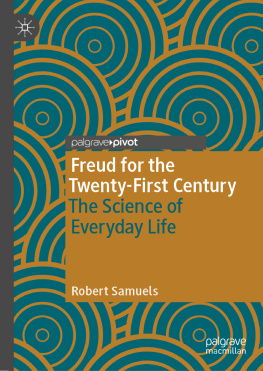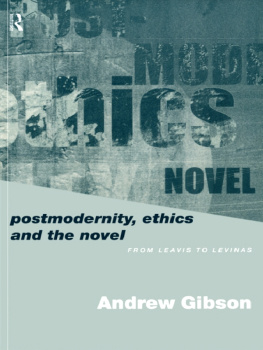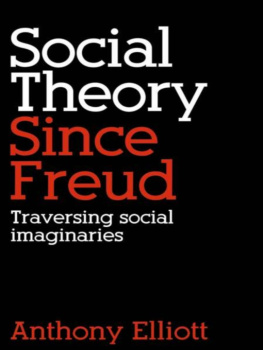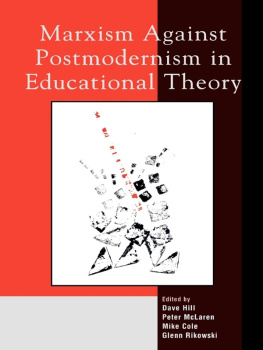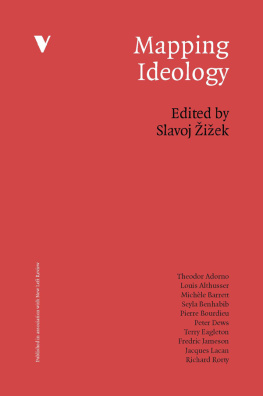NEWMEDIA, CULTURAL STUDIES, AND CRITICAL THEORY AFTER POSTMODERNISM
AUTOMODERNITYFROM ZIZEK TO LACLAU
ROBERTSAMUELS
EDUCATION,PSYCHOANALYSIS, AND SOCIAL TRANSFORMATION
SeriesEditors:
J an J agodzinski,University of Alberta
MarkBracher, Kent State University
Thepurpose of this series is to develop and disseminate psychoanalytic knowledgethat can help educators in their pursuit of three core functions of education:
1. facilitating student learning
2. fostering students personal development, and
3. promoting prosocial attitudes, habits, and behaviors instudents (i.e. those opposed to violence, substance abuse, racism, sexism,homophobia, etc.).
Psychoanalysiscan help educators realize these aims of education by providing them withimportant insights into:
1. the emotional and cognitive capacities that are necessary forstudents to be able to learn, develop, and engage in prosocial behavior
2. the motivations that drive such learning, development, andbehaviors, and
3. the motivations that produce antisocial behaviors as well asresistance to learning and development.
Suchunderstanding can enable educators to develop pedagogical strategies andtechniques to help students overcome psychological impediments to learning anddevelopment, either by identifying and removing the impediments or by helpingstudents develop the ability to overcome them. Moreover, by offering anunderstanding of the motivations that cause some of our most severe socialproblems including crime, violence, substance abuse, prejudice, andinequalitytogether with knowledge of how such motivations can be altered,books in this series will contribute to the reduction and prevention of suchproblems, a task that education is increasingly being called upon to assume.
RadicalPedagogy: Identity, Generativity, and Social Transformation ByMark Bracher
Teachingthe Rhetoric of Resistance: The Popular Holocaust and Social Change in a Post9/11 World By Robert Samuels
Televisionand Youth Culture: Televised Paranoia By janjagodzinksi
Psychopedagogy:Freud, Lacan, and the Psychoanalytic Theory of Education ByK. Daniel Cho
NewMedia, Cultural Studies, and Critical Theory after Postmodernism: Automodernityfrom Zizek to Laclau By Robert Samuels
NEWMEDIA, CULTURAL STUDIES, AND CRITICAL THEORY AFTER POSTMODERNISM Copyright Robert Samuels, 2009.
Allrights reserved.
Firstpublished in 2009 by PALGRAVE MACMILLAN in the United States - a division ofSt. Martins Press LLC, 175 Fifth Avenue, New York, NY 10010.
Wherethis book is distributed in the UK, Europe and the rest of the world, this isby Palgrave Macmillan, a division of Macmillan Publishers Limited, registeredin England, company number 785998, of Houndmills, Basingstoke, Hampshire RG216XS.
PalgraveMacmillan is the global academic imprint of the above companies and hascompanies and representatives throughout the world.
Palgraveand Macmillan are registered trademarks in the United States, the UnitedKingdom, Europe and other countries.
ISBN:978-0-230-61981-4
Libraryof Congress Cataloging-in-Publication Data is available from the Library ofCongress.
Acatalogue record of the book is available from the British Library.
Designby Macmillan Publishing Solutions First edition: January 2010
109 8 7 6 5 4 3 2 1
Printedin the United States of America
ForSophia, Madeleine, and Jacqueline
Contents
Preface ix
PartI: A Radical Critique of Academic Theory 1
1. Automodernity: Autonomy and Automation after Postmodernity 3
2. Henry Jenkins: Cultural Studies, New Media, and the Ends ofthe Modern University 27
3. After Frederic Jameson: A Practical Critique of Pure Theoryand Postmodernity 51
4. The Political without Politics: Slavoj Zizek and thePsychoanalysis of Automodernity 69
PartII: The Psychopathology of Automodernity 85
5. On the Psychopathology of the New Right: From Jurassic Park to the Gendered CultureWars 87
6. The Automodern University: The Universal Individual and the Backlash againstSocial Discourse 105
7. Grand Theft Automodernity: Globalizing Individualism and Cultural Nihilism from Eminem to The Matrix 123
PartIII: Postmodern Education, Social Movements, and Politics 145
8. Postmodern Education and Social Ethics after Automodernity 147
9. Taking Back the Automodern University: Postmodern Progressive
SocialMovements and the Academic Class System 167 10. Beyond theZizek-Laclau Debate: Coalition Politics and
AcademicTheory after Obama 187
Notes 207
WorksCited 241
Index
Preface
T hisbook argues that we have moved into a new cultural period, automodernity, whichrepresents a social, psychological, and technological reaction topostmodernity. In fact, by showing how individual autonomy is now beinggenerated through technological and cultural automation, I posit that we mustrethink modernity and postmodernity. Part of this rethinking entails stressinghow the progressive political aspects of postmodernism need to be separatedfrom the aesthetic consumption of differences in automoderntiy. Ultimately, Iposit that what defines postmodernity is the stress on social constructionism,secular humanism, and progressive social movements that challenge theuniversality and neutrality of modern reason.
Inorder to distinguish automodernity from postmodernity, I begin this book byanalyzing the role of new media in catering to an antisocial model oflibertarian politics and subjectivity. Thus, Chapter 1 concentrates on the useof new media technologies in the current backlash against the postmodernwelfare state and progressive social movements. This chapter also introduces mycritical rereading of postmodernity and postmodern academic theory.
InChapter 2, I switch my attention to the recent history of cultural studies andthe analysis of new media in critical theory. In examining the work HenryJenkins, I reveal how the field of cultural studies has become a backlashdiscourse, and while this mode of academic criticism once concentrated on theroles of race, gender, and class in the social construction of mediarepresentations, it has now shifted its attention to how particular individualsfind meaning in diverse media. By performing a genealogy of cultural studies, Iwill argue that academic criticism is itself mirroring the cultural move from thestress on the social to the emphasis on the individual, and this transition hasimportant political and theoretical effects.
InChapter 3, I use the work of Frederic Jameson to posit that we need to rethinkhis notion of postmodernity in order to differentiate between the progressiveaspects of social constructivism and the regressive appropriation of culturaldifferences for aesthetic and economic purposes. I also demonstrate thatradical academic thinkers, like Jameson, tend to unknowingly participate in aconservative backlash against postmodern social movements. In fact, Jameson isopenly hostile to these new modes of political protest and organization becausethey do not take on a classic Marxist stress on a total revolution against atotalizing system.
Chapter4 continues this critique of academic theory by looking at the work of SlavojZizek. My central contention is that Zizek also participates in a strongautomodern backlash against postmodern progressive social movements, and bycritiquing his work, we can see how academic theory often functions toreplicate destructive aspects of the status quo, while it pretends to offer aspace for transgression and subversion. Central to this critique of Zizekswork is a demonstration of how he misreads Lacan through a reactionarydiscourse.
Inthe next part of the book, I turn to the role of cultural studies and criticaltheory in contemporary politics, institutions of higher education, and culturalproductions. Chapter 5 uses critical postmodern theories to examine thepsychological foundations of the new Right. By offering a psychoanalyticreading of
Next page
